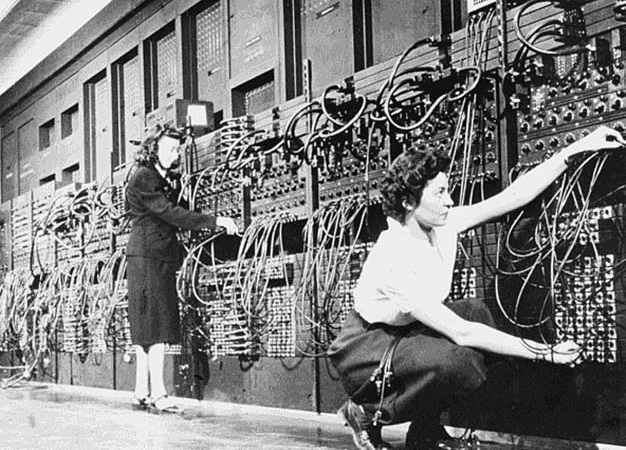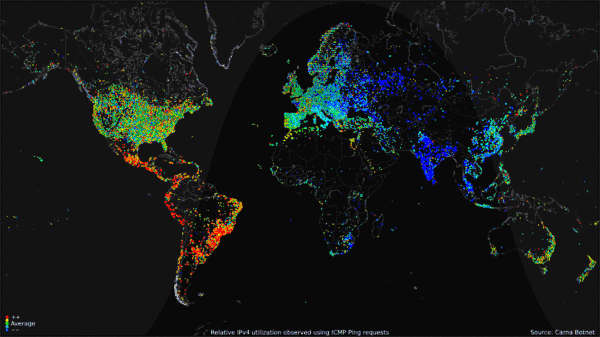Evolution of the Internet
Published on December 1st, 2014

The first computer programmer was a woman; Ada Lovelace. She founded modern computer languages, and thus, helped to create the modern age Internet.
The birth of the internet
Technology has been apart of the world for as long as history has existed in one form or another. The advance of the digital age, however, truly only began to become the massive boom that it is in the early 1980’s up until now. For Webtron, our business would simply not exist in its current form without the aid of this incredibly powerful tool.
The evolution of both technology and the internet is a story that extends much longer than people think. While the history of computers extends back as far as the early BC era, the internet’s history is relatively small in comparison. We begin, however, with the creation of electronic computers in the 1950’s.
Concepts of such a thing was in development in science laboratories in many countries around the world to network computers together, to begin with. ARPANET was the first network system to host the internet in 1969 once it had spread across the world, at that point. Two computers began it all with a simple conversation:
“We set up a telephone connection between us and the guys at SRI …”, Kleinrock … said in an interview: “We typed the L and we asked on the phone,
“Do you see the L?”
“Yes, we see the L,” came the response.
We typed the O, and we asked, “Do you see the O.”
“Yes, we see the O.”
Then we typed the G, and the system crashed …
Yet a revolution had begun ….”
Gromov, Gregory (1995). “Roads and Crossroads of Internet History”.
The development of ISP
From then onwards, technology only began to grow. A process called ‘packet switching’ was created in the same year, but it didn’t become globally accepted until sometime in the 1970’s when a laboratory in the UK used it all throughout their complex. By 1976, 12 computers and 75 terminal devices were attached to the network.
By the mid-1970’s, many different forms of computer networks had become to arise from all parts of the world as packet switching technology began to become widely available to labs and government facilities. However, there was nothing that was unified. Two groups came together to try and work on a solution, in which the Internet Protocol Suite (ISP) was developed. This is something that is still in use today.
What did this mean?
The resulting protocol, RFC 675 – Specification of Internet Transmission Control Program, by Vinton Cerf, Yogen Dalal and Carl Sunshine, Network Working Group, December 1974, contains the first attested use of the term internet, as a shorthand for ‘internetworking’; later RFCs repeat this use, so the word started out as an adjective rather than the noun it is today.
Because the ISP could be used on any network system, this solved the problem and united all networks no matter what they were. Because of this, it was funded to be developed and released.
And released it was! The years passed, and eventually, in 1989, TCP/IP – the software behind the internet, went global. All continents over the next few years began the installation and operation of TCP/IP across the world. During the late 1980s, the first Internet service provider (ISP) companies were formed. Companies like PSINet, UUNET, Netcom, and Portal Software were formed to provide service to the regional research networks and provide alternate network access, UUCP-based email and Usenet News to the public. The first commercial dialup ISP in the United States was The World, which opened in 1989.
Bringing the internet to households and businesses
By then, households began to have computers within their homes, and businesses were beginning to add computers to their companies. The internet was soon opened up to the world, and from then, it has only exploded in strength from barely 100 users to billions.

A 24 hour cycle of the internet being used worldwide. Red being highest, and dark blue lowest use.
The internet age
From what started as a humble networking system continues to evolve. Hundreds of devices now rely on the internet to work. And communication to the other sides of the world has become as easy as a click of a button. People can communicate in a way that was not possible a mere 20 years ago. This is to the point that now, we can do things we never thought were possible.
Buying items online, talking to people on the other side of the world (for free, no less) to even what Webtron came to be built upon (selling a house online) that we can be forever thankful for the minds of those who wanted to unite the network, who then united the world.


